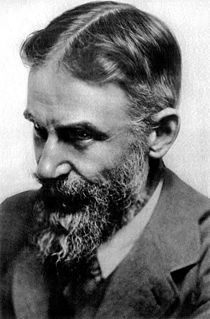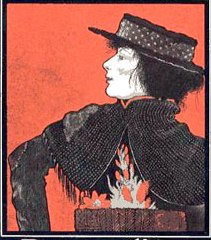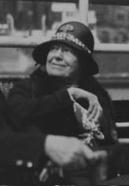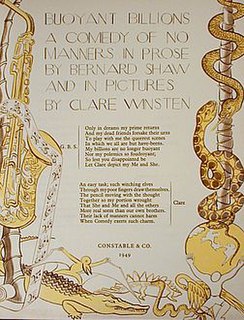
Candida, a comedy by playwright George Bernard Shaw, was written in 1894 and first published in 1898, as part of his Plays Pleasant. The central characters are clergyman James Morell, his wife Candida and a youthful poet, Eugene Marchbanks, who tries to win Candida's affections. The play questions Victorian notions of love and marriage, asking what a woman really desires from her husband. The cleric is a Christian Socialist, allowing Shaw—himself a Fabian Socialist—to weave political issues, current at the time, into the story.

Captain Brassbound's Conversion (1900) is a play by G. Bernard Shaw. It was published in Shaw's 1901 collection Three Plays for Puritans. The first American production of the play starred Ellen Terry in 1907. The play explores the relationship between the law, justice, revenge and forgiveness.

Fanny's First Play is a 1911 play by George Bernard Shaw. It was first performed as an anonymous piece, the authorship of which was to be kept secret. However, critics soon recognised it as the work of Shaw. It opened at the Little Theatre in the Adelphi in London on 19 April 1911 and ran for 622 performances. The mystery over the authorship helped to publicise it. It had the longest run of any of Shaw's plays. A second production opened on Broadway on September 16, 1912 for 256 performances. The play toured the provinces in England in the same year.

Pygmalion is a play by George Bernard Shaw, named after the Greek mythological figure. It premiered at the Hofburg Theatre in Vienna on 16 October 1913 and was first presented in German on stage to the public in 1913. Its English-language premiere took place at Her Majesty's Theatre in the West End in April 1914 and starred Herbert Beerbohm Tree as phonetics professor Henry Higgins and Mrs Patrick Campbell as Cockney flower girl Eliza Doolittle.

Heartbreak House: A Fantasia in the Russian Manner on English Themes is a play written by George Bernard Shaw, first published in 1919 and first played at the Garrick Theatre in November 1920. According to A. C. Ward, the work argues that "cultured, leisured Europe" was drifting toward destruction, and that "Those in a position to guide Europe to safety failed to learn their proper business of political navigation". The "Russian manner" of the subtitle refers to the style of Anton Chekhov, which Shaw adapts.

Charlotte Frances Payne-Townshend was an Irish political activist in Britain. She was a member of the Fabian Society and was dedicated to the struggle for women's rights. She married the playwright George Bernard Shaw.

How He Lied to Her Husband is a one-act comedy play by George Bernard Shaw, who wrote it, at the request of actor Arnold Daly, over a period of four days while he was vacationing in Scotland in 1904. In its preface he described it as "a sample of what can be done with even the most hackneyed stage framework by filling it in with an observed touch of actual humanity instead of with doctrinaire romanticism." The play has often been interpreted as a kind of satirical commentary on Shaw's own highly successful earlier play Candida.

Too True to Be Good (1932) is a comedy written by playwright George Bernard Shaw at the age of 76. Subtitled "A Collection of Stage Sermons by a Fellow of the Royal Society of Literature", it moves from surreal allegory to the "stage sermons" in which characters discuss political, scientific and other developments of the day. The second act of the play contains a character based on Shaw's friend T. E. Lawrence.

Village Wooing, A Comedietta for Two Voices is a play by George Bernard Shaw, written in 1933 and first performed in 1934. It has only two characters, hence the subtitle "a comedietta for two voices". The first scene takes place aboard a liner, the second in a village shop. The characters are known only as "A" and "Z".

The Shewing-Up of Blanco Posnet: A Sermon in Crude Melodrama is a one-act play by George Bernard Shaw, first produced in 1909. Shaw describes the play as a religious tract in dramatic form.

Annajanska, the Bolshevik Empress: A Revolutionary Romancelet is a one-act play by George Bernard Shaw, written in 1917.

Buoyant Billions (1948) is a play by George Bernard Shaw. Written at the age of 92, it was his last full-length play. Subtitled "a comedy of no manners", the play is about a brash young man courting the daughter of an elderly billionaire, who is pondering how to dispose of his wealth after his death, a subject that was preoccupying Shaw himself at the time.

Jitta's Atonement (1923) is an adaptation by George Bernard Shaw of the play Frau Gitta's Sühne by Siegfried Trebitsch. It is about a woman who has to atone to her husband for having an affair with his best friend. The atonement of both Jitta and other characters take unexpected forms. Shaw dramatically rewrote the last part of the play, giving it a more characteristically Shavian tone.

The Inca of Perusalem, An Almost Historical Comedietta (1915) is a comic one-act play written during World War I by George Bernard Shaw. The plot appears at first to be a fairy-tale like story about a fantastical "Inca", but it eventually becomes obvious that the Inca is Kaiser Wilhelm II of Germany.

O'Flaherty V.C., A Recruiting Pamphlet (1915) is a comic one-act play written during World War I by George Bernard Shaw. The plot is about an Irish soldier in the British army returning home after winning the Victoria Cross. The play was written at a time when the British government was promoting recruitment in Ireland, while many Irish republicans expressed opposition to fighting in the war.

The Music Cure, a Piece of Utter Nonsense (1913) is a short comedy sketch by George Bernard Shaw, satirising therapeutic fads of the era and the Marconi scandal of 1912.

The Glimpse of Reality, A Tragedietta (1909) is a short play by George Bernard Shaw, set Italy during the 15th century. It is a parody of the verismo melodramas in vogue at the time. Shaw included it among what he called his "tomfooleries".

The Fascinating Foundling (1909) is a short comic play by George Bernard Shaw. Shaw classified it as one of his "tomfooleries". He was so unimpressed with his own work that the published text was humorously subtitled "a Disgrace to the Author".

Press Cuttings (1909), subtitled A Topical Sketch Compiled from the Editorial and Correspondence Columns of the Daily Papers, is a play by George Bernard Shaw. It is a farcical comedy about the suffragettes' campaign for votes for women in Britain. The play is a departure from Shaw's earlier Ibsenesque dramas on social issues. Shaw's own pro-feminist views are never articulated by characters in the play, but instead it ridicules the arguments of the anti-suffrage campaigners.

The Interlude at the Playhouse (1907) is a short comic sketch written by George Bernard Shaw to be delivered by Cyril Maude and his wife Winifred Emery as a curtain raiser at the opening of The Playhouse, a newly renovated theatre managed by Maude. The sketch was performed on Monday, 28 January 1907.







